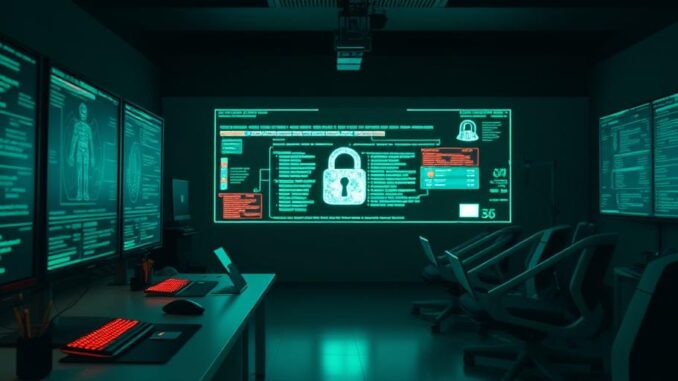
Summary
A ransomware attack on a pathology services provider has disrupted operations in major London hospitals, causing cancellations and patient diversions. The incident highlights the vulnerability of healthcare systems to cyber threats and the potential for widespread disruption of patient care. Authorities are investigating the attack and working to restore services.
** Main Story**
Alright, let’s talk about this cyberattack hitting London hospitals. It’s a serious situation, and frankly, a little terrifying. A major attack has crippled Synnovis, a key pathology services provider, and the ripple effects are hitting several major hospitals hard. We’re talking about a full-blown crisis. The ransomware attack, which started June 3rd, has essentially taken down crucial services – blood transfusions, test results, the whole nine yards. Operations are shutting down, appointments are being cancelled left and right and emergency patients are being rerouted. What a mess.
The Immediate Impact
The fallout is pretty devastating. King’s College Hospital, Guy’s and St Thomas’ – including Royal Brompton and Evelina London Children’s Hospital – they’re all struggling. And it’s not just the big hospitals; primary care services in the affected areas are feeling the pressure too. Think about it: blood transfusions, something we often take for granted, are now being done manually. Pen and paper? Seriously? That slows everything down, and increases the risk of errors. You can imagine the stress on the medical staff. And sadly, non-emergency procedures are getting canned. I heard about one 70 year old called Oliver Dowson, his operation was cancelled at the last minute after he’d been preparing for it since 6am – can you believe that? It is pretty tough and honestly, it’s a situation that could easily impact any of us, or our families.
Synnovis Under Siege
So, who’s to blame? Well, Synnovis has confirmed they were hit by a ransomware attack. Apparently, it took down all their IT systems, which explains the widespread chaos. They’ve apologized, of course, and said they have a “taskforce of IT experts” working on it. But, and it’s a big but, one source at the Health Service Journal reckons it could take weeks to get everything back online. Weeks! That’s a long time to operate with limited pathology services. Honestly, it’s a serious concern for long term patient care.
The Response So Far
NHS England London has declared a “critical incident,” which is about as serious as it gets, and understandably they’ve apologized for the disruptions. Look, they’re saying emergency care is still available, and people should still seek help if they need it, unless told otherwise. The NHS is working with the National Cyber Security Centre to investigate, assess the damage, and hopefully prevent this from happening again. They’re trying to figure out what can be done safely, and are shifting some procedures to other hospitals. It’s all hands on deck, it seems. I will say; communication is key here, and it sounds like the NHS is trying to keep the public updated.
A Bigger Problem in Healthcare
But let’s be clear: this isn’t a one-off thing. Healthcare is under constant cyberattack, and I think it is probably going to increase. Patient data is sensitive, and healthcare relies heavily on digital systems; making it a prime target. Apparently, in 2022, the healthcare industry dealt with an average of 1,463 cyberattacks per week! And it is estimated that over 500 healthcare providers reported data breaches involving 500+ records in 2024. Ransomware attacks are going through the roof, too – a 300% increase since 2015. The average ransomware attack costs healthcare organizations around $900,000 per day – not including ransom payments! And given that healthcare is becoming more and more digital, the risk is only going to increase. This Synnovis attack should act as a wake-up call. We need better cybersecurity measures, and robust incident response plans for all our healthcare providers, you agree? Because let’s face it, the consequences go far beyond money; they can impact patient safety and public trust. And that’s something we just can’t afford to lose.


The mention of manual processes replacing digital systems highlights the critical need for offline contingency plans within healthcare cybersecurity strategies, ensuring patient care continuity during disruptions.
Great point! The reliance on manual processes really underscores the importance of regularly testing those offline contingency plans. It’s not enough to just have them; staff need to be well-versed in their execution to minimize disruption and maintain patient safety during a crisis. What are some best practices for training staff on these fallback procedures?
Editor: MedTechNews.Uk
Thank you to our Sponsor Esdebe